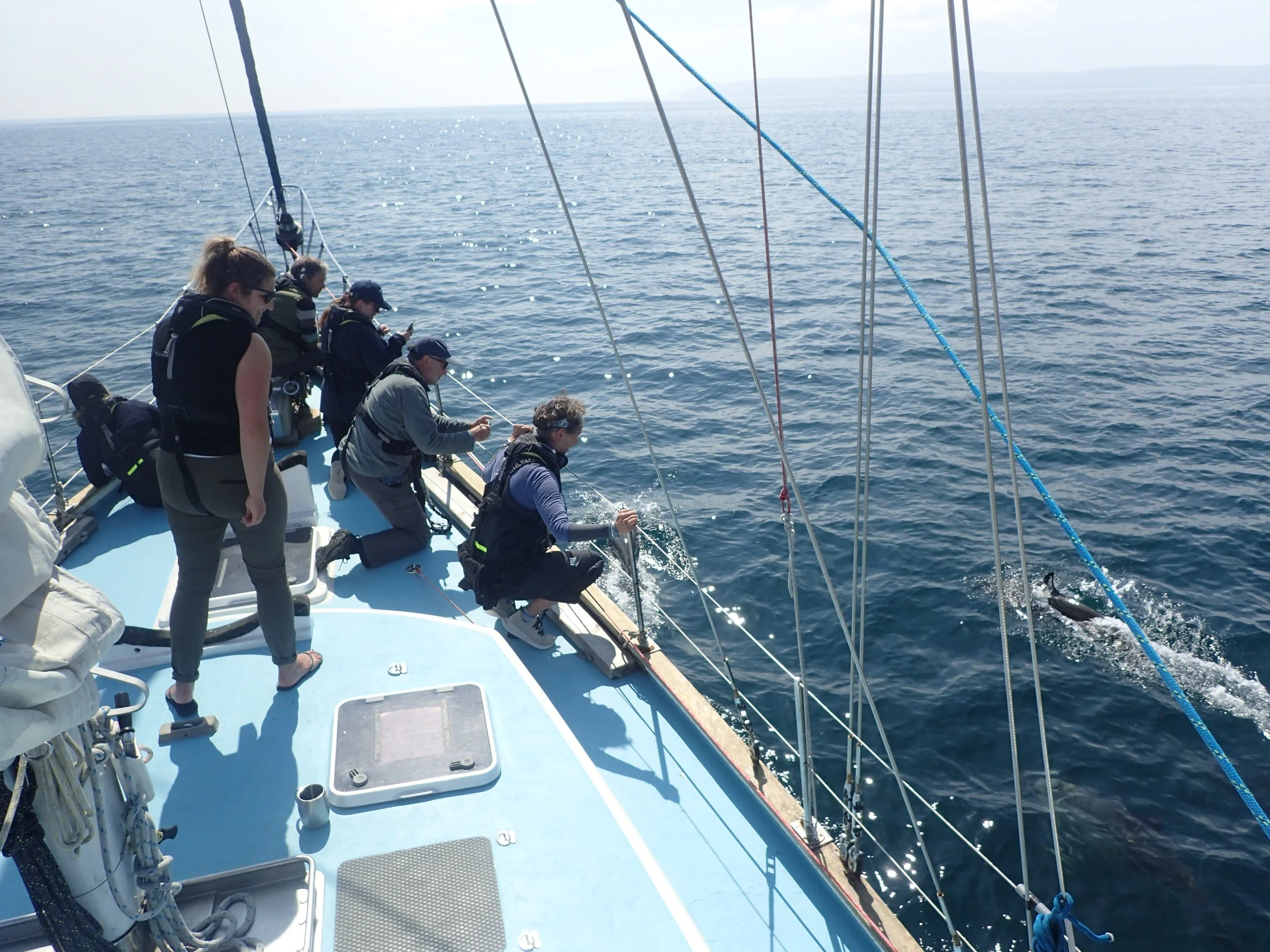Research Expedition HWDT03: 17 - 24 May 2026
Research Expedition HWDT03: 17 - 24 May 2026
COST: Total cost is £1,725 per person - this includes all food, accommodation (on board) and specialised equipment for the duration of the expedition but excludes transport costs to and from rendezvous.
A 50% deposit of £862.50 is required to secure your berth aboard.
Remaining balance invoices will be issued 100 days before the start of the expedition.
DATES: 6pm on Sunday 17 May - 9am on Sunday 24 May
DURATION: 8 days
RENDEZVOUS: Ullapool, north west Highlands
PARTICIPANT AGE: 18+
Read the Terms and Conditions for participating in a Research Expedition HERE.
By paying your non-refundable deposit payment, you are agreeing to the Terms and Conditions set out, so please read carefully
Join us on board our research yacht, Silurian, as we depart from Ullapool (in the north west Highlands) to monitor the rich Hebridean seas. This unique eco-tourism expedition is like no other in the UK; explore the wilds of the Hebrides, have some awesome wildlife experiences, make fantastic friends and join a community of people getting directly involved in the conservation of whales, dolphins, porpoises and basking sharks.
Alongside our more common resident species, like harbour porpoise and bottlenose dolphin, this survey will monitor the arrival of seasonal visitors to Hebridean seas, such as minke whale and common dolphin.
This expedition will rendezvous in Ullapool, in the north west Highlands, allowing for monitoring of the seas in the more northern and western reaches of our study area. Over 8 days, you will get the opportunity to explore some of the more remote parts of the Hebrides; with the chance of encountering some of our rarer species of whale and dolphin, such as humpback whale, Risso’s dolphin and white beaked dolphin.
Specific routes surveyed are decided during the expedition and are based on weather conditions and data collection coverage to date.
Spring in the Hebrides is a wonderful time with nature awakening after the dark winter months. Sea birds are returning to land to nest and breed and seasonal visitors to our inshore waters are starting to arrive. Generally the weather is more settled in spring which allows for easier conditions to survey.

